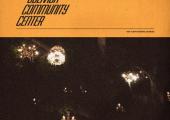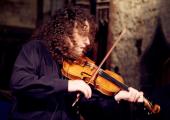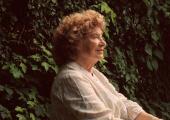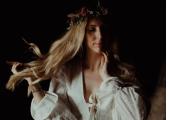With books including Mountains of the Mind, The Wild Places, The Old Ways and Landmarks, Robert MacFarlane has established himself as one of the leading writers on landscape in the English language, continuing a literary tradition that contains talents as diverse as John Muir, Robinson Jeffers, Edward Thomas and Laurie Lee. His 2017 collaboration with the artist Jackie Morris on a large-format book of poems for children called The Lost Words: A Spell Book has now been adapted for stage, with Morris creating brand new art works for a UK tour, beginning on Friday 8 February at Snape Maltings, and featuring eight leading folk musicians – Karine Polwart, Beth Porter, Jim Molyneux, Kris Drever, Seckou Keita, Rachel Newton, Kerry Andrew and Julie Fowlis. Here, Robert MacFarlane discusses the development of Spell Songs out of the pages of The Lost Words, and Julie Fowlis and Seckou Keita talk about putting those spells to music.
TIM CUMMING: How did the collaboration with the eight musicians for a stage version of The Lost Words come about?
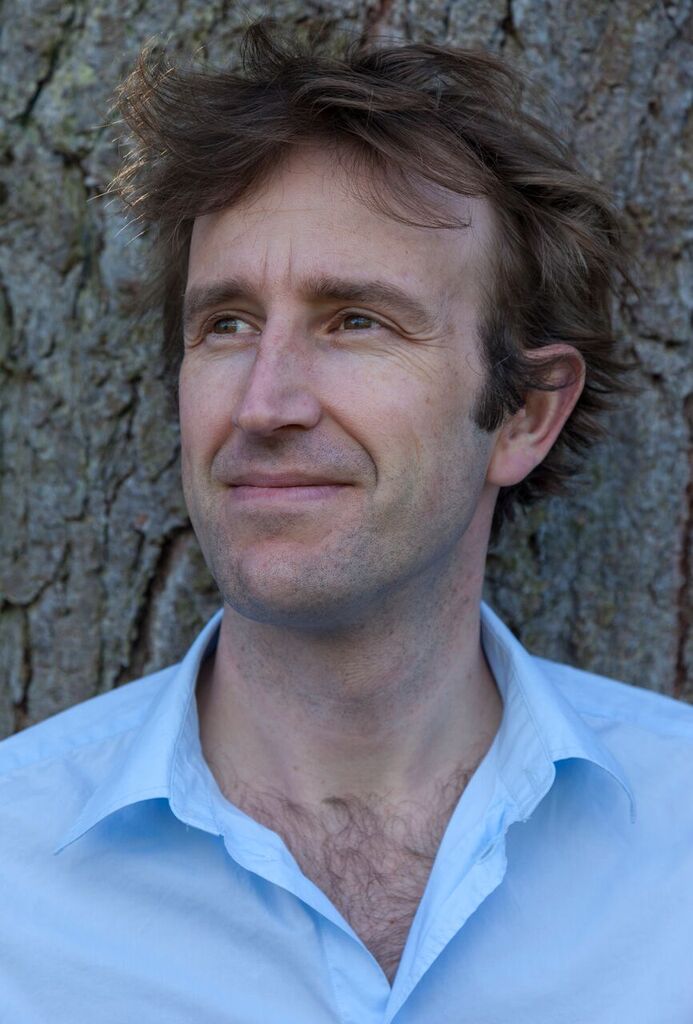 ROBERT MACFARLANE: It came about by a series of chances and wonders, like many of the best things. Two years ago, I first heard the extraordinary, eerie voice of Kerry Andrew, singing “Little Wren” – her very modern version of a very old folk-song, “The Cutty Wren”. It bewitched me, instantly and deeply, and Kerry and I fell into conversation. I subsequently, presumptuously, asked her if she might consider setting and singing a version of the “Wren Spell” from The Lost Words. She did so, and made something wondrous of it. In the November after The Lost Words was published, Jackie and I played her “Wren Spell-Song” on stage at the Hay Festival. Sitting in the audience were Caroline and Adam Slough, founders of Folk By The Oak… Kerry's setting bewitched them, and Spell Songs was born! Through it all has danced that tiny, beautiful, elusive bird, the wren.
ROBERT MACFARLANE: It came about by a series of chances and wonders, like many of the best things. Two years ago, I first heard the extraordinary, eerie voice of Kerry Andrew, singing “Little Wren” – her very modern version of a very old folk-song, “The Cutty Wren”. It bewitched me, instantly and deeply, and Kerry and I fell into conversation. I subsequently, presumptuously, asked her if she might consider setting and singing a version of the “Wren Spell” from The Lost Words. She did so, and made something wondrous of it. In the November after The Lost Words was published, Jackie and I played her “Wren Spell-Song” on stage at the Hay Festival. Sitting in the audience were Caroline and Adam Slough, founders of Folk By The Oak… Kerry's setting bewitched them, and Spell Songs was born! Through it all has danced that tiny, beautiful, elusive bird, the wren.
What was your involvement with it and what has your role been in working with the musicians and artist for the stage show?
The book The Lost Words was itself a collaboration between me and the artist Jackie Morris, who I think may actually be a magician. She lives on a clifftop in West Wales, with a dog that looks like a wolf and a cat that looks like a leopard, and she can conjure birds onto the page out of just water and coloured inks. So both Jackie and I have been much involved with Spell Songs from the beginning. Jackie and I were both present with all the musicians, bar Seckou Keita, in Greta House in Keswick last autumn, where the project was first developed. We all went on a walk up Cat Bells above Derwent Water, and the clouds split to show us sun as we reached the summit. Omens and blessings don't get much better than that. During those days in Keswick, I felt an absurd sense of insane good fortune, to be working with people of such creative power and talent. 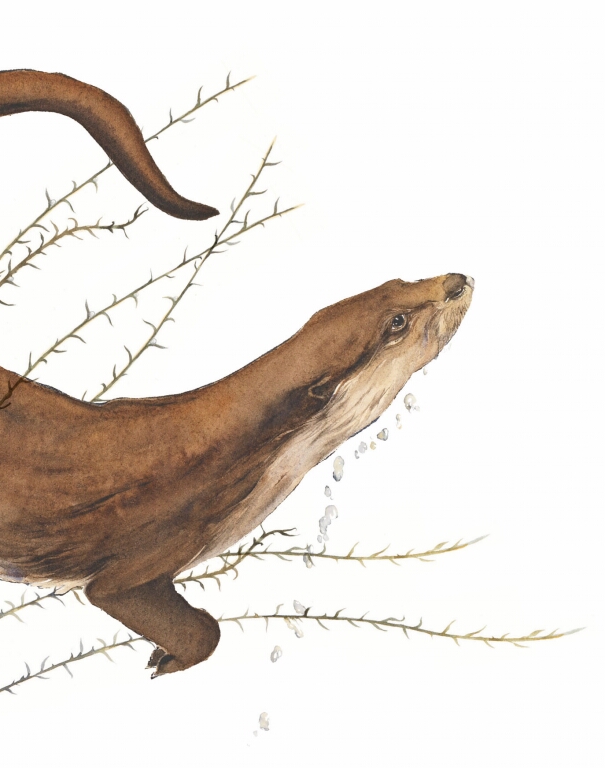
Will the musicians be using your Spells, or adapting them? Are you working with them on new texts?
I obviously wrote the lyrics of the 20 "spells" in The Lost Words, many of which have been adapted by the musicians. From the beginning I encouraged them to feel pretty much full license in terms of interpreting, adapting, and reworking the texts. I also gave the musicians seven or eight new poems (songs, spells) I'd written, including a Selkie summoning song, a protest 'charm' called Heartwood, written to save trees in danger of unjust felling, and spells for “Egret”, “Snow Hare”, “Peregrine” and “Silver Birch”. Many of these new works have ended up getting set and sung as part of the performance, which makes me very glad. Part of the joy of watching the project unfold has been seeing musicians match up with particular creatures, or songs. Julie Fowlis singing my “Selkie Song”; Jim Molyneux working with the “Lark Spell” (a song of sadness and hope)...well, as a writer, one doesn't get much luckier than this, really.
What do you expect to see and hear when it reaches the stage?
I have no idea and – perhaps oddly – I am trying to keep my hands over my ears until the premiere at the Southbank. I sort of want to hear it all for the first time, with full force, there and then, surrounded by my parents and my friends, and next to Jackie.
Words migrate from many sources and this musical stage project envelops English, Scottish, Senegalese cultures. In what ways do you think the journeys of words reflects human journeys and migrations?
Words, like waves, have fetches. They have travelled great distances to reach us, and often the histories of their journeys are inaudible or invisible, or can only be dreamed back. The same is true of people, and groups of people. Migration, movement and metamorphosis are at the heart of language history and at the heart of human history, too. I love the fact that Seckou Keita plays a tune called “Clarach”, meaning “Osprey”, celebrating the flight of a bird that, like him, has migrated from sub-Saharan Africa to Britain. So yes, we are very much celebrating movement and trans-nationality in these songs.
I wanted to use language that tasted good in the mouth, that writhed and chimed and sung and flourished in the mind’s ear as well as the mind’s eye
The Lost Words has been a huge cultural phenomenon. How would you describe the power of spells – ie, poetical word craft as opposed to analytic/descriptive word craft?
The distinction I'd make is between words that are written to be spoken or sung aloud, and those designed to be read silently on the page; i.e the difference between oral and written culture. When we were making The Lost Words, I would always send every spell to Jackie with the instructions at the top: “To be read aloud...”. I wanted to use language that tasted good in the mouth, that writhed and chimed and sung and flourished in the mind’s ear as well as the mind’s eye. So in a way these were songs before they were anything, and it has been wonderful to hear from so many tens of thousands of children and parents who have read or performed them aloud to one another.
Can words bring about a re-enchantment?
Yes, of course. Language is a world-making force; discourse shapes what we do and make and dream. But it can be used for ill as well as good. I am interested exclusively in its capacity for good; ways it might make us see more sharply what we value; name into knowledge what we might lose. We will not save what we do not love, and we rarely love what we cannot name.
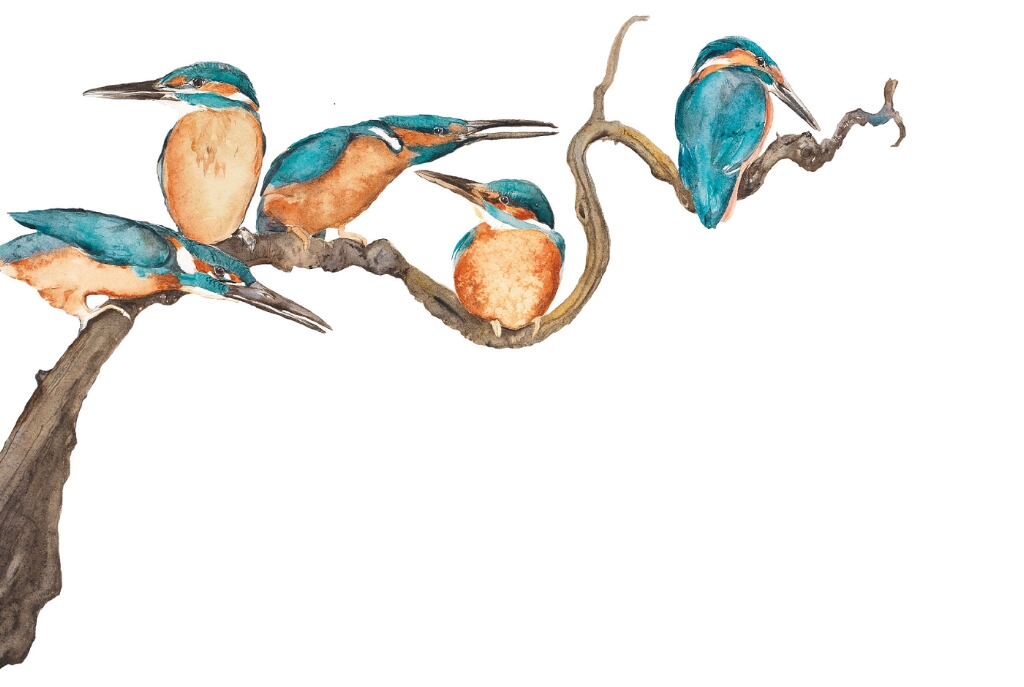 What do we lose when we lose once vivid and loved words?
What do we lose when we lose once vivid and loved words?
Language is always new-making, and it is in its nature to continue to coin fresh-minted terms. Many words that mulch down into history, and vanish, are not losses we should mourn. But it seems to me at this time of huge ecological damage, and of extirpation, extinction and disappearance of diversity going on around the world – including in the cities, woods and fields of Britain – that we should wish to hold onto, and renew, a basic natural literacy. The Lost Words was imagined as an act of creative dissent, and beautiful protest, against the loss of everyday nature and its common names.
What was the process of working with the artist like – would your spell words change in light of the art work?
On the whole, I wrote before Jackie painted. But that was not in any way because her art was secondary to my words; merely that this was the way the rhythm of our process developed. The very last spell was “Dandelion”, and I got stuck on it; I knew I wanted to write about the many names of Dandelion and its traditional role as a time-keeper, but it wasn't until I saw Jackie's dandelion painting – set against a green-goldleaf background – that I realised a Dandelion is a clock in two senses; not just the seed-head, but also the leaves, when seen from above, which spoke out like the hands of a clock that keeps many times. That inspired the final spell, which begins “Dazzle me, little sun-of-the-grass! / And spin me, little time machine!”
Will you appear at any of the gigs or on the record?
I'll be doing a Q&A before the Southbank performance, and I'm writing some of the liner notes for the album, but in terms of voice – no. No one would want that. I have the musical ability of a lead ingot, and my singing voice sounds like a fox knocking over a dustbin...
Overleaf: more from Julie Fowlis and Seckou Keita
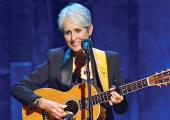

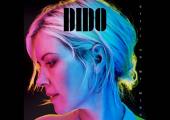
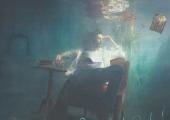
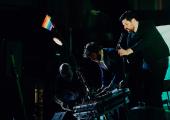
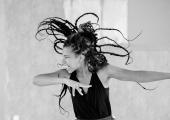
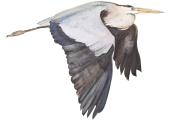
 ROBERT MACFARLANE: It came about by a series of chances and wonders, like many of the best things. Two years ago, I first heard the extraordinary, eerie voice of Kerry Andrew, singing “Little Wren” – her very modern version of a very old folk-song, “The Cutty Wren”. It bewitched me, instantly and deeply, and Kerry and I fell into conversation. I subsequently, presumptuously, asked her if she might consider setting and singing a version of the “Wren Spell” from The Lost Words. She did so, and made something wondrous of it. In the November after The Lost Words was published, Jackie and I played her “Wren Spell-Song” on stage at the Hay Festival. Sitting in the audience were Caroline and Adam Slough, founders of Folk By The Oak… Kerry's setting bewitched them, and Spell Songs was born! Through it all has danced that tiny, beautiful, elusive bird, the wren.
ROBERT MACFARLANE: It came about by a series of chances and wonders, like many of the best things. Two years ago, I first heard the extraordinary, eerie voice of Kerry Andrew, singing “Little Wren” – her very modern version of a very old folk-song, “The Cutty Wren”. It bewitched me, instantly and deeply, and Kerry and I fell into conversation. I subsequently, presumptuously, asked her if she might consider setting and singing a version of the “Wren Spell” from The Lost Words. She did so, and made something wondrous of it. In the November after The Lost Words was published, Jackie and I played her “Wren Spell-Song” on stage at the Hay Festival. Sitting in the audience were Caroline and Adam Slough, founders of Folk By The Oak… Kerry's setting bewitched them, and Spell Songs was born! Through it all has danced that tiny, beautiful, elusive bird, the wren.
 What do we lose when we lose once vivid and loved words?
What do we lose when we lose once vivid and loved words?